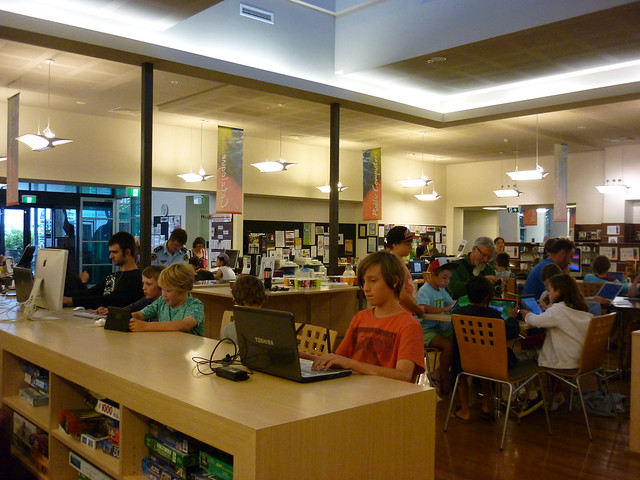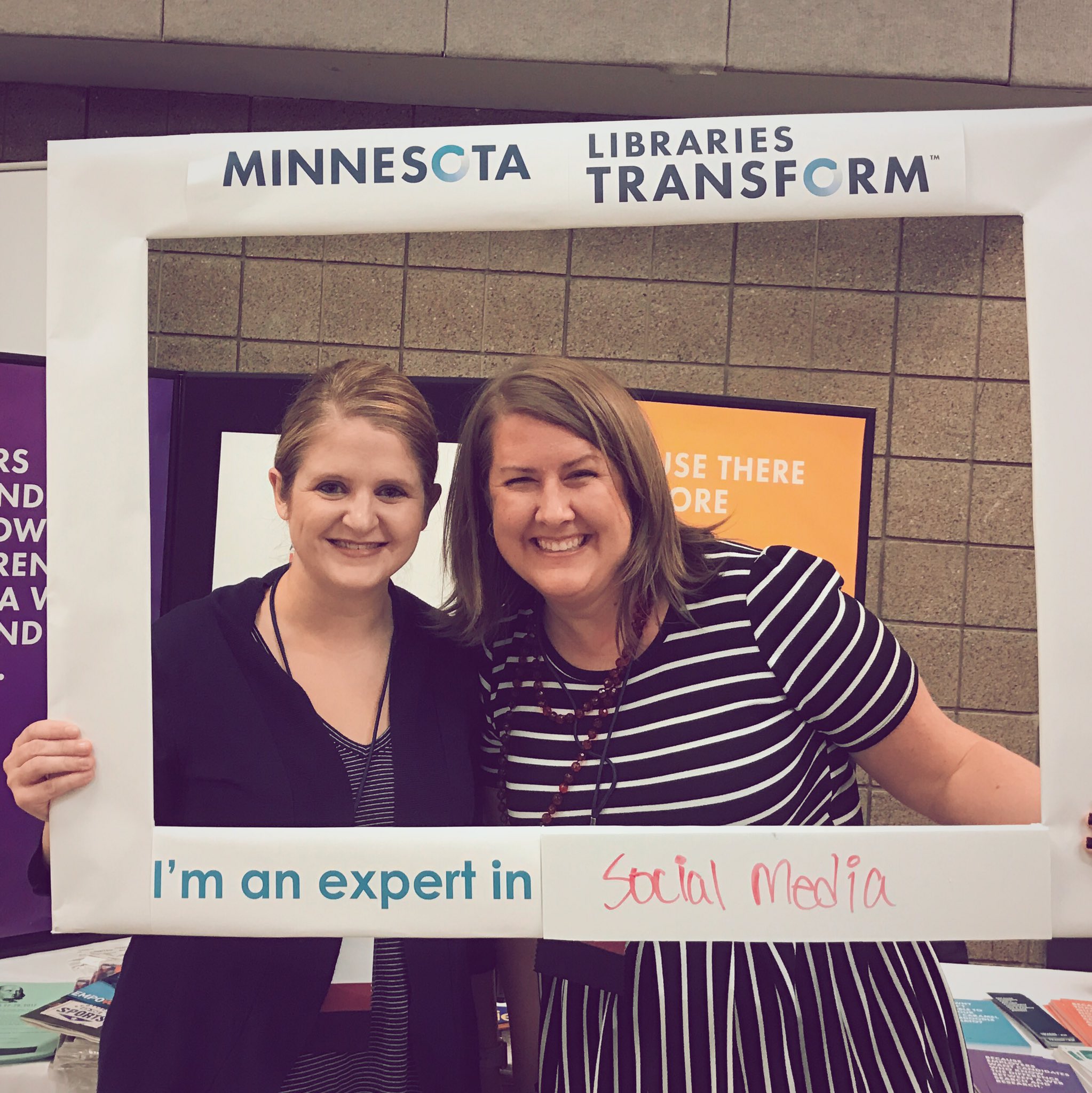Welcome back to Snaps, Macs, and Actual Books!
Ways Libraries Are Transforming
Source: Kiama Library
If you follow me on Twitter, you may have noticed I frequently use the hashtag "LibrariesTransform". Some of you may also wonder what I'm referencing and/or meaning by using it. And this post will give you a crash course on the Libraries Transform initiative.
What is it?
First things first: what is it? According to the Libraries Transform website, it is a campaign initiated by the American Library Association, or ALA, "designed to increase public awareness of the value, impact and services provided by libraries and library professionals."
Okay, so what does that mean? The main idea is "libraries today are less about what they have for people and more about what they do for and with people" (Libraries Transform).
"That's cool, in all, Melissa, but how exactly are they going to achieve it?" I have your answer. There are three key components to this campaign (Libraries Transform):
- Provocative branding (“Because…” statements) that surprise and catch attention of target audiences.
- Libraries Transform website.
- National, state and local implementation strategies and tactics.
Example of provocative branding:
Source: @HSUHuieLibrary on Twitter
What are the trends in libraries transforming?
There are many trends that relevant to libraries. Too many for me to list and explain all 23 trends (and counting), but I will highlight three. For the full list, click here.
- Maker Movement:
- It's about "makerspaces or hackerspaces provide places in the community where individuals can gather, use shared equipment, and learn" (Maker Movement - ALA).
- Unplugged:
- Libraries are taking the perceptions of libraries being quiet places and "marketing at least some space in their buildings as places to unplug, concentrate, and focus" (Unplugged - Libraries Transform).
- This means what was previously called "quiet reading places" is now being called "unplug zones" or "digital escape spaces" (Unplugged - Libraries Transform).
- Fandom:
- This trend "provides opportunities to explore, celebrate and gather around a particular creative work, team or trend" (Fandom - Libraries Transform).
- "It's often associated with science fiction and fantasy but fandom can encompass anything that generates a devoted base of followers" (Fandom - Libraries Transform).
A6: Any book, tech tool, or gadget that causes Ss to wonder! Libraries are for Ss to transform "I wonder? Into "I know." #whatisschool pic.twitter.com/FpsFikeJ7n— Stony Evans (@stony12270) September 29, 2016
How academic libraries are adapting?
To continue using the above trends, here are real examples of each.
- Maker Movement:
- An example is the Makerspace in Rod Library, University of Northern Iowa. It's free and open to the public, but it is reservable. It's "designed for collaborative building projects, maker meetings, and arts and crafts projects" (Makerspace - Rod Library).
- Unplugged:
- This example also comes from the Rod Library at University of Northern Iowa. It's the noise levels on the different floors: the higher you go, the quieter the noise level is on that floor. Noise level by floors: 1st, medium; 2nd, high; 3rd, medium; and 4th, low.
- Fandom:
- An example of this can be seen at Temple Libraries, Temple University. The Paskow Science Fiction Collection features access to "rare books, manuscripts, fanzines and memorabilia, along with the personal papers of several science fiction and fantasy writers" (Fandom - Libraries Transform).
Source: @HevWam on Twitter
Why does this matter?
So, now that you completed my crash course on the Libraries Transform initiative, you might be wondering why does this matter?
I'm not going to cite any sources with this answer. I'm going to give you my opinion that's backed-up with all the experience from working in libraries since I turned 16.
It matters because libraries need to find their place in a digitally and technologically-oriented world. This means more than just adding a few computers and Kindles to circulation. Libraries are innovating, evolving into a place that combines technology, societal trends in the world, among others, while still keeping the library in the traditional sense. To be honest, libraries are completely acing it.



I think libraries are doing pretty well at keeping up with our changing world!
ReplyDelete